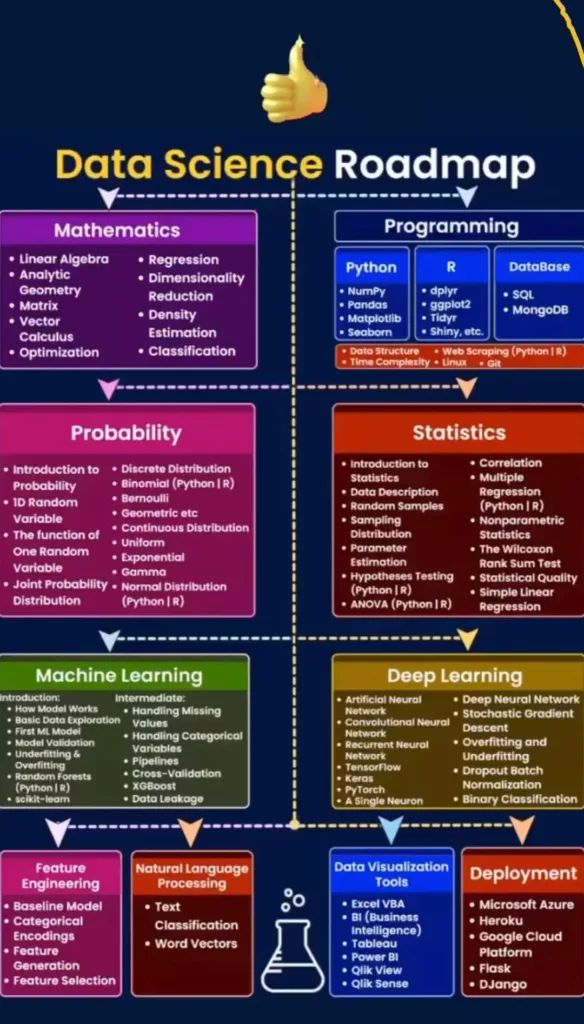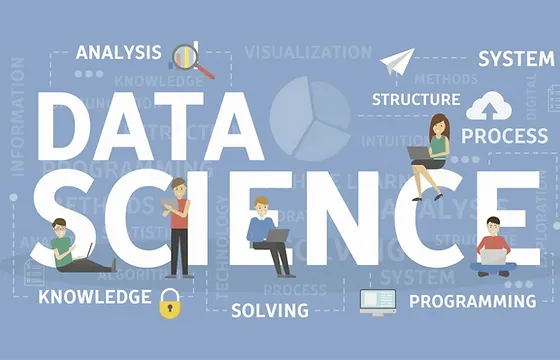
1. Mastering Foundational Mathematics:
Begin with basic mathematical concepts such as arithmetic, algebra, and geometry, essential for understanding data science principles.
Develop proficiency in mathematical notation and symbols commonly used in data science.
2. Learning Programming Languages:
Choose either Python or R, two versatile languages widely used in data science for their extensive libraries and flexibility.
Familiarize yourself with SQL for effective database querying and data extraction.
3. Understanding Statistics and Probability:
Dive into descriptive statistics, including measures like mean, median, and standard deviation.
Explore inferential statistics, covering hypothesis testing, confidence intervals, and regression analysis.
Gain insights into probability theory and its applications in data analysis.
4. Data Exploration and Visualization:
Master data manipulation with Pandas and visualization with Matplotlib/Seaborn.
Conduct Exploratory Data Analysis (EDA) to identify patterns, correlations, and outliers within datasets.
5. Fundamentals of Machine Learning:
Understand supervised learning techniques such as regression and classification algorithms.
Explore unsupervised learning methods including clustering and dimensionality reduction.
Learn model evaluation metrics such as accuracy, precision, recall, and F1-score.
6. Feature Engineering:
Familiarize yourself with feature selection techniques like Recursive Feature Elimination (RFE) and feature importance analysis.
Explore feature transformation methods such as scaling, encoding, and feature creation.
7. Model Deployment and Maintenance:
Learn to deploy machine learning models in production environments.
Implement strategies for monitoring model performance and conducting regular maintenance and retraining.
8. Advanced Topics:
Dive into advanced areas such as Deep Learning, including neural networks, CNNs, and RNNs.
Explore Natural Language Processing (NLP) for text analysis and sentiment analysis.
Understand Time Series Analysis for forecasting time-dependent data.
9. Soft Skills and Communication:
Develop critical thinking skills for effective problem-solving.
Enhance communication skills to articulate technical findings and insights to non-technical audiences.

